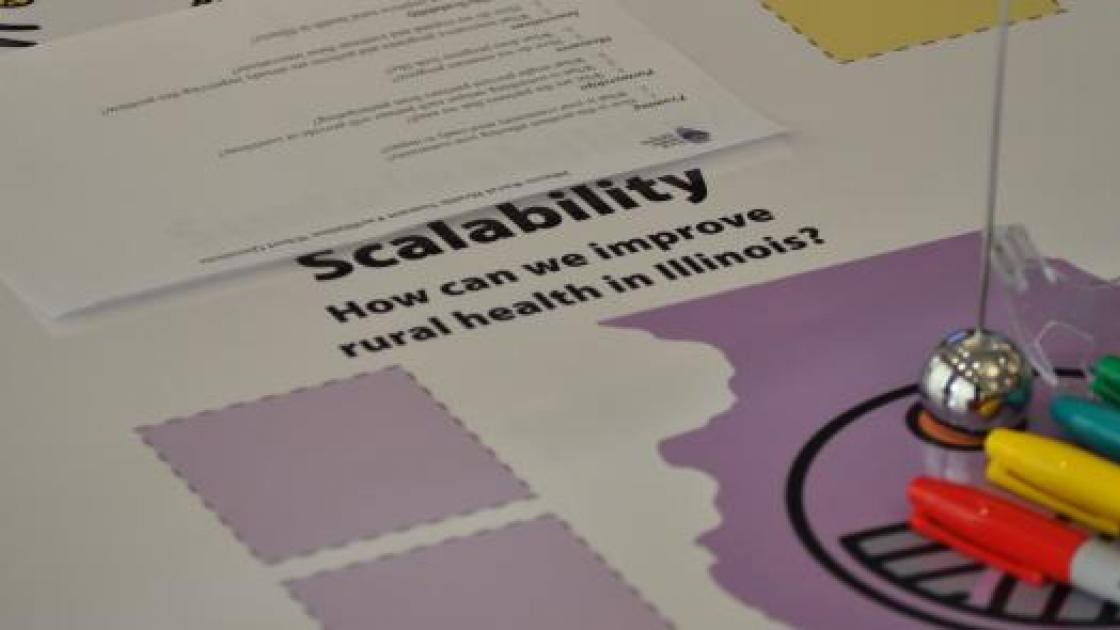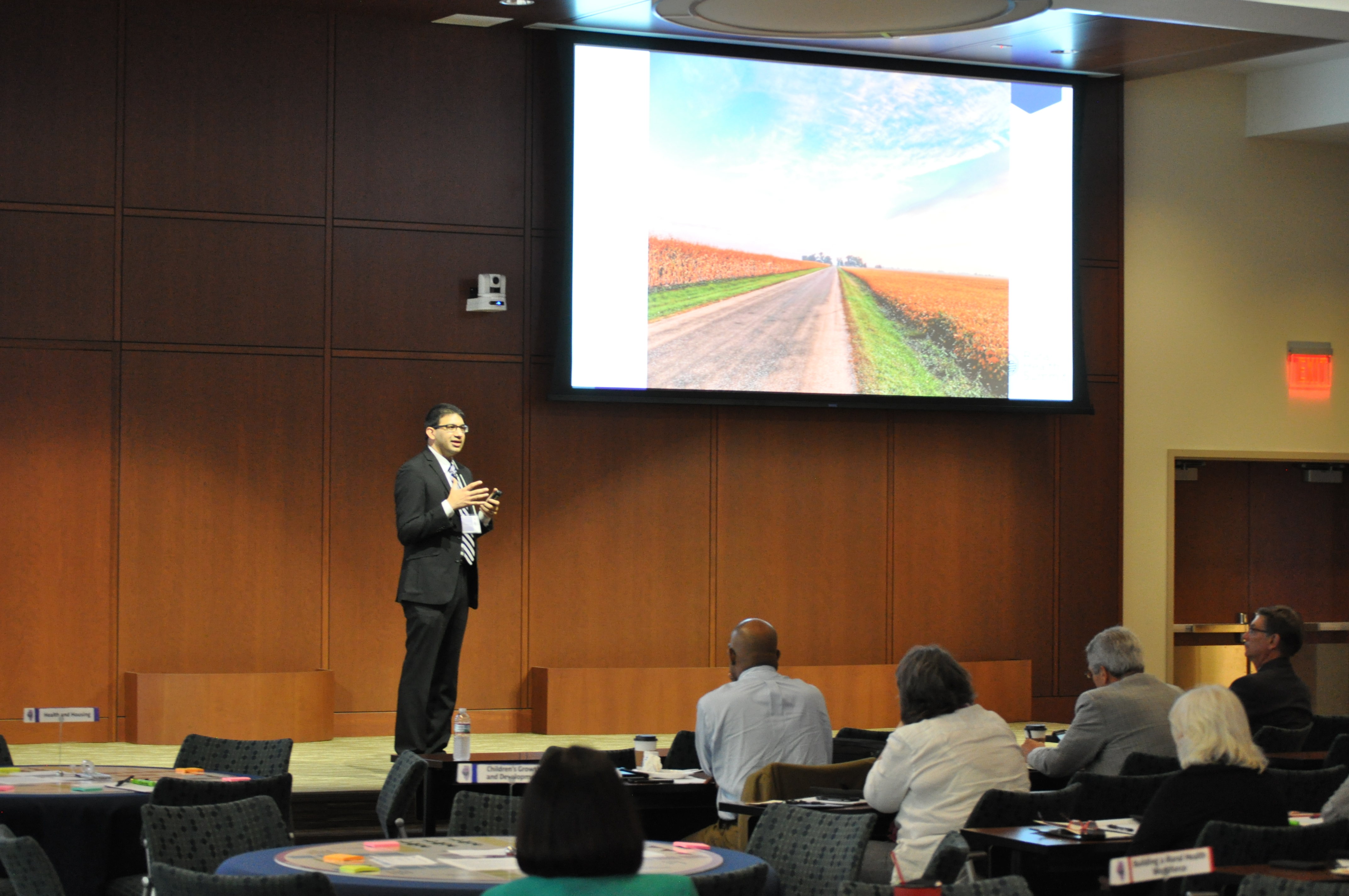
2018 Rural Health Summit
The 2018 Illinois Rural Health Summit, sponsored by SIU School of Medicine Department of Population Science and Policy, Paul Simon Public Policy Institute, UIC School of Public Health, SIU School of Medicine Center for Rural Health and Social Service  Development and the Illinois Department of Public Health, convened an influential group of rural health experts and stakeholders in Springfield on August 6-7, 2018. The two-day event gathered information and inspiration to begin drafting and executing a blueprint to improve the health of residents in rural Illinois.
Development and the Illinois Department of Public Health, convened an influential group of rural health experts and stakeholders in Springfield on August 6-7, 2018. The two-day event gathered information and inspiration to begin drafting and executing a blueprint to improve the health of residents in rural Illinois.
“Our mission at SIU Medicine’s Department of Population Science and Policy is to improve health in central and southern Illinois, a mostly rural, 66-county service region. However, we know that we can’t do this alone,” said Dr. Sameer Vohra, Chair, SIU Medicine Department of Population Science and Policy. “Our hope for the Summit was to bring together dynamic, influential individuals to have frank and candid conversations of the challenges facing our residents, what innovations already exist and what we can accomplish together to improve the health of our State.”
In October, 2018, Rural Health Summit organizers released its first report, "The State of Rural Health in Illinois: Great Challenges and a Path Forward." The report outlined significant challenges and health disparities faced by rural residents as compared to residents in the state's metropolitan areas. Physician shortages, opioid use, childhood disparities, an aging population, obesity, housing and the rural economy were identified as major challenges in rural communities.
The Rural Health Summit participants and organizers continue to work with legislators, rural health experts and stakeholders to identify ways to improve rural health.
Related Press Releases:
Rural Health Stakeholders Convene for 2018 Illinois Rural Health Summit
Rural Health Summit Releases Report on Rural Health in Illinois
Related Documents
The State of Rural Health in Illinois: Great Challenges and a Path Forward
